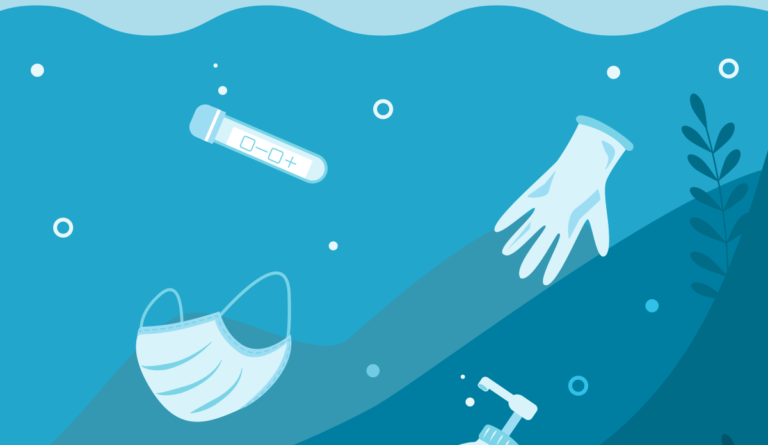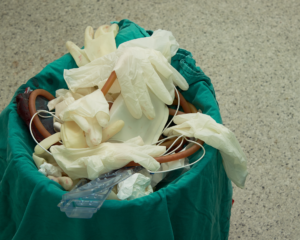Human Health and Ocean Pollution
Plastic pollution has gained wide notoriety of late, but other forms of marine pollution have worsened invisibly.

Read Time: 4 minutes
Published:
Pollution is the largest environmental cause of disease and death in the world today. It is responsible for 9 million deaths each year. It causes enormous economic losses. It falls disproportionately upon the poor and the vulnerable.
Ocean pollution is an understudied aspect of pollution. Plastic pollution has gained wide notoriety of late, but other forms of marine pollution have worsened invisibly. Their dangers are only beginning to be recognized.
To develop a comprehensive picture of ocean pollution and its hazards to human and planetary health, we convened an International Commission on Human Health and Ocean Pollution in partnership with the Centre Scientifique de Monaco. We brought together 42 scientists from 18 countries to review current knowledge of ocean pollution, project trends, and develop science-based strategies. Our work spanned two years.
Our main finding is that ocean pollution is widespread, worsening, and poorly controlled. It is a complex mixture of toxic metals, plastics, manufactured chemicals, petroleum, pesticides, fertilizers, pharmaceuticals, and sewage (See figure). Eighty percent arises from the land.

Visualization by Will Stahl-Timmins.
Other key findings:
- More than 10 million tons of plastic waste enter the seas every year. Larger pieces kill marine life. Most breaks down into microscopic particles containing toxic chemicals – carcinogens, neurotoxins, and endocrine disruptors. These toxin-laden particles accumulate in fish and shellfish and then get into the bodies of people who eat seafood.
- Mercury pollution is widespread and insidious. Coal is the major source. When coal burns, mercury (which is present in small amounts in all coal) vaporizes, goes up into the atmosphere, and washes eventually into the sea. It accumulates to high levels in predator fish, such as tuna. Infants exposed in the womb through their mothers’ consumption of contaminated fish can suffer brain injury with reduced IQ. Adult exposures raise risks for heart disease and dementia.
- Petroleum pollutants from oil spills kill beneficial microorganisms in the sea that produce much of the oxygen we breathe.
- Coastal pollution increases frequency of harmful algal blooms — red tides, brown tides, and green tides. These blooms produce powerful toxins that accumulate in fish and shellfish and can cause dementia, amnesia, paralysis, and death in humans who eat contaminated seafood.
- The combination of coastal pollution and sea surface warming encourages spread of dangerous pathogens such as Vibrio cholerae, the causative agent of cholera.
The good news is that ocean pollution can be prevented. The key is courageous political leadership that acts on the science and deploys control strategies based on law, policy, technology, and enforcement. These actions have cleaned fouled harbors – think Boston Harbor – rejuvenated estuaries and restored coral reefs. They have produced health and economic benefits that will last for centuries.
The actions needed to clean the oceans and restore planetary health will be neither easy nor unopposed.
We presented our findings in Monaco on December 3, 2020 at an international Symposium on Human Health and the Ocean in a Changing World. Prince Albert II of Monaco presided and endorsed our findings. At the Symposium, participants unanimously adopted the Declaration of Monaco on Advancing Human Health by Preventing Ocean Pollution. This powerful Declaration calls on world leaders to:
- Prevent all forms of pollution and slow climate change by transitioning from fossil fuels to clean, renewable energy.
- Control plastic pollution by reducing plastic production, banning single-use plastics, improving waste sorting and recycling, and developing affordable alternatives.
- Prevent mercury pollution by ending coal burning and controlling industrial mercury use.
- Control coastal pollution by reducing agricultural releases, curbing industrial discharges controlling sewage, and ending oil and gas exploration in coastal waters.
- Extend regional and international marine pollution control programs to all coastal countries.
- Expand marine protected areas.
The actions needed to clean the oceans and restore planetary health will be neither easy nor unopposed. They will require profound social change. But, if we wish to leave our children and our grandchildren a beautiful and still blue planet, they are essential.
Photo via Getty Images



